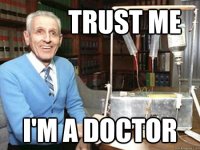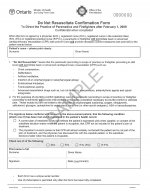- Reaction score
- 7,336
- Points
- 1,160
I approach with trepidation. I want to keep politics out of this as much as possible. If it gets too heated I will ask the moderators to shut this thing down quickly.
I am an orphan. Both of my parents died in their 50s of cancer. My father elected treatment. My mother rejected treatment. Both died. Neither died pleasantly. My mother had a marginally better end - self-medicating with morphine in a public hospital.
I am of two minds with respect to assisted dying as I suspect most people are. Some days I understand the need and am accepting. Some days I reject the need. Some days I accept the need but reject the accommodation because it can be an overly attractive solution.
I also have real problems with anybody acting for another person in this matter - proclaiming an ability to understand that person's wishes better than the person themselves is able to voice. That person is the unfortunate one who cannot be granted relief on exactly the same grounds that the death penalty was abolished. The risk of an "innocent" or in this case "unwilling" person dying is too great. The guilty must go free. The sufferer can't be granted release - unless they specifically ask for it at the time.
That is background.
I want to move on to the mechanics of assisting the dying. The expectation is that medical practitioners will be providing the service mandated by the state, or in fact by the courts, simply because they are by and large employees of the state. But many practitioners are opposed on moral grounds and all practitioners have taken oaths "to do no harm". For whatever an oath is worth these days insofar as courts seem to permit people to cross their fingers and change their minds.
To manage the problem of competing oaths I suggest the following:
The return of the Public Executioner.
The Executioner is the person hired to execute the wishes of the state. Much like a soldier.
Soldiers should not be executioners in this sense. Equally doctors should not be executioners.
If the state and the courts have determined that society must provide assistance in dying then I suggest it is up to the state and the courts to employ such people as are necessary to execute the wishes of the state and the courts and provide such assistance as they deem appropriate when a citizen requests his or her demise.
Of course, given the current wide interpretation of when assistance is appropriate, it may be that the Public Executioner finds themselves confronted by individuals for whom the prospect of life, 25 years, 15 years, 5 years behind bars is just too hard to bear and are requesting assistance.
I am an orphan. Both of my parents died in their 50s of cancer. My father elected treatment. My mother rejected treatment. Both died. Neither died pleasantly. My mother had a marginally better end - self-medicating with morphine in a public hospital.
I am of two minds with respect to assisted dying as I suspect most people are. Some days I understand the need and am accepting. Some days I reject the need. Some days I accept the need but reject the accommodation because it can be an overly attractive solution.
I also have real problems with anybody acting for another person in this matter - proclaiming an ability to understand that person's wishes better than the person themselves is able to voice. That person is the unfortunate one who cannot be granted relief on exactly the same grounds that the death penalty was abolished. The risk of an "innocent" or in this case "unwilling" person dying is too great. The guilty must go free. The sufferer can't be granted release - unless they specifically ask for it at the time.
That is background.
I want to move on to the mechanics of assisting the dying. The expectation is that medical practitioners will be providing the service mandated by the state, or in fact by the courts, simply because they are by and large employees of the state. But many practitioners are opposed on moral grounds and all practitioners have taken oaths "to do no harm". For whatever an oath is worth these days insofar as courts seem to permit people to cross their fingers and change their minds.
To manage the problem of competing oaths I suggest the following:
The return of the Public Executioner.
The Executioner is the person hired to execute the wishes of the state. Much like a soldier.
Soldiers should not be executioners in this sense. Equally doctors should not be executioners.
If the state and the courts have determined that society must provide assistance in dying then I suggest it is up to the state and the courts to employ such people as are necessary to execute the wishes of the state and the courts and provide such assistance as they deem appropriate when a citizen requests his or her demise.
Of course, given the current wide interpretation of when assistance is appropriate, it may be that the Public Executioner finds themselves confronted by individuals for whom the prospect of life, 25 years, 15 years, 5 years behind bars is just too hard to bear and are requesting assistance.



